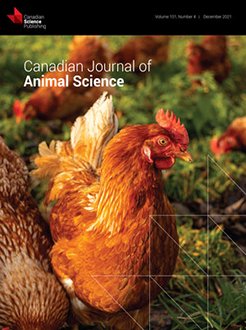A total of 160 growing pigs (24.69 ± 1.89 kg) were randomly assigned to one of four treatments in a 2 × 2 factorial design with two different levels of nutrient density diet with or without 0.3% probiotic (Lactobacillus plantarum). Each treatment had eight replicates with five pigs (three gilts and two barrows) per pen. At the end of the trial, pigs fed 0.3% probiotic supplement had significantly increased body weight, whereas the average daily gain and gain to feed ratio was significantly increased in both probiotic and high-nutrient density (HD) diet. The nutrient digestibility of dry matter was significantly increased in pigs fed HD diet, whereas nitrogen and gross energy digestibility and blood characters immunoglobulin and lymphocyte counts were significantly increased in both HD and probiotic groups. Inclusion of HD diet with 0.3% probiotic significantly decreased NH3 and H2S gas emission. Moreover, nitrogen and energy showed a significant interaction between probiotic and density diet. In summary, dietary probiotics with HD diet increased the growth performance, nutrient digestibility, blood profile, and reduced gas emission. We suggest that 0.3% probiotic with HD diet could serve as an alternative feed additive to enhance the growth performance of growing pigs.
How to translate text using browser tools
4 June 2021
Inclusion of probiotic (Lactobacillus plantarum) in high- and low-nutrient-density diets reveals a positive result on the growth performance, nutrient digestibility, gas emission, and blood profile in growing pigs
Vetriselvi Sampath,
Jae Hong Park,
In Ho Kim
ACCESS THE FULL ARTICLE
It is not available for individual sale.
This article is only available to subscribers.
It is not available for individual sale.
It is not available for individual sale.
diète à densité nutritionnelle
growing pigs
growth performance
Lactobacillus plantarum
Lactobacillus plantarum
nutrient density diet
performance de croissance





